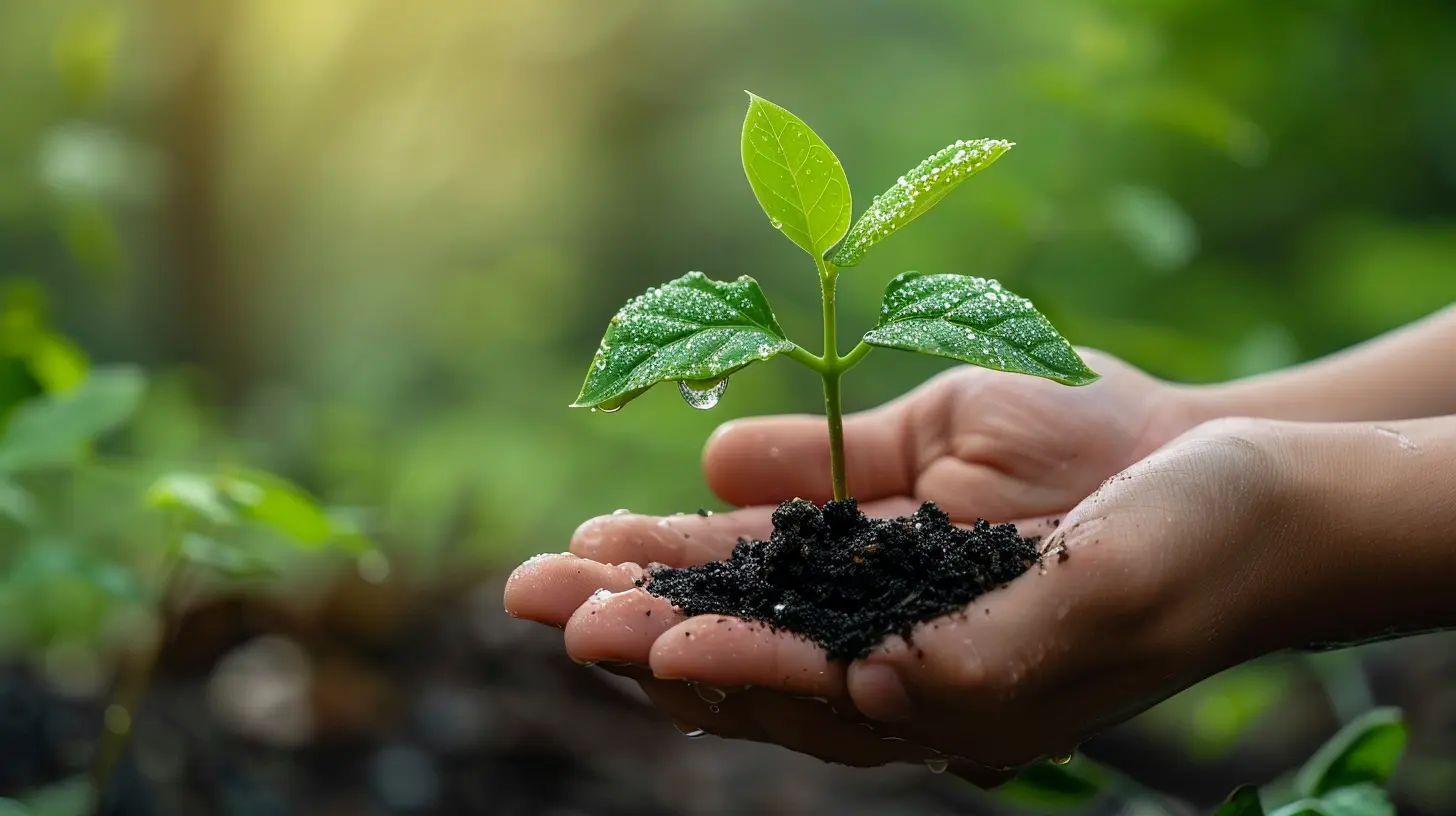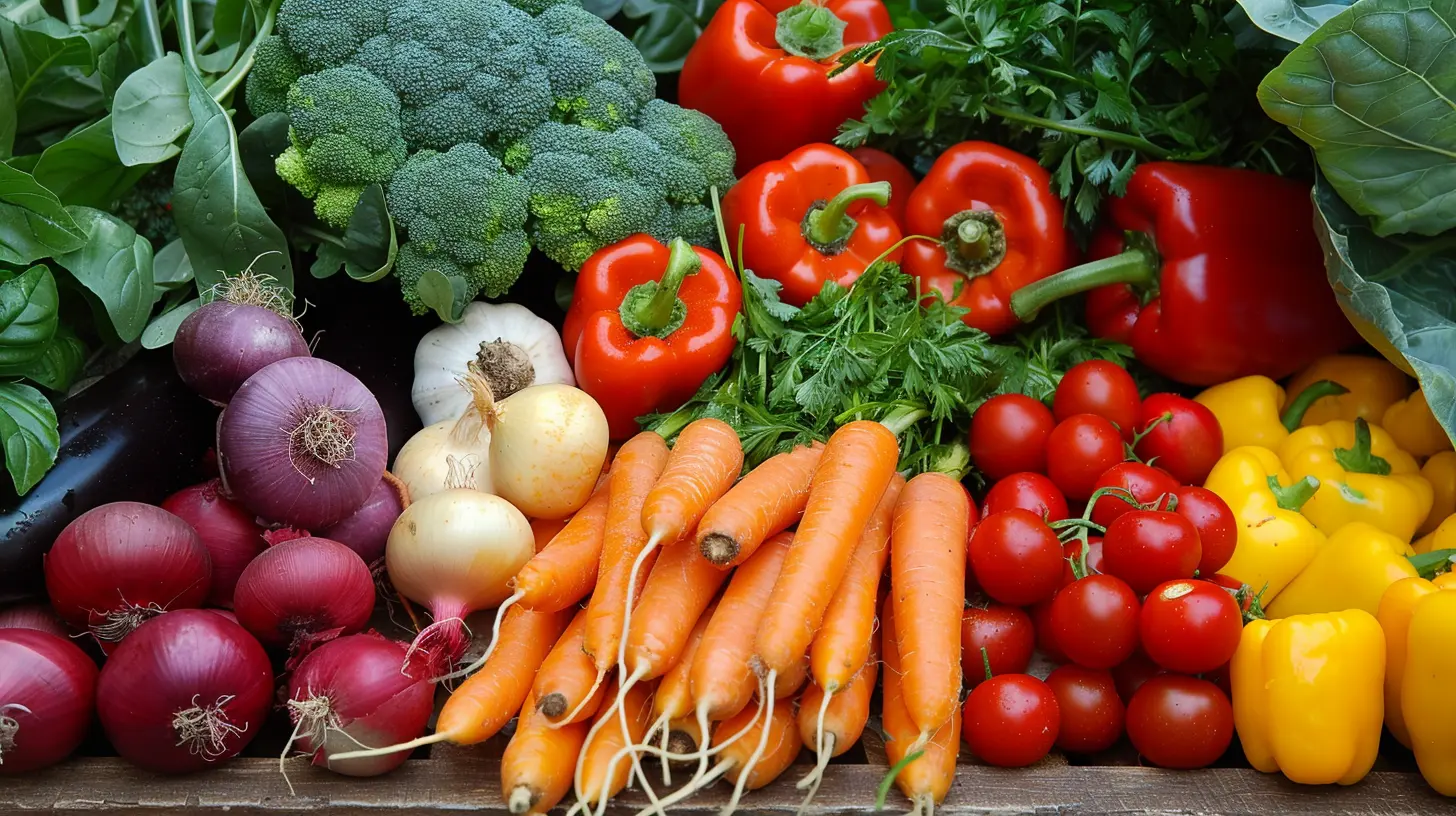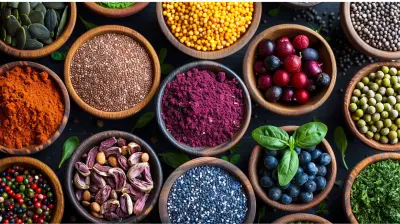The Impact of Veganism on Environmental and Personal Wellness
17 September 2025
Veganism has been gaining traction like never before, and it’s not just a passing fad. More and more people are turning to a plant-based lifestyle, not only for personal health benefits but also because they care about the planet. But how exactly does cutting out animal products make such a big difference?
Well, buckle up! We’re diving deep into how veganism benefits both the environment and personal well-being. If you've been on the fence about making the switch, this might just be the motivation you need.

How Veganism Positively Affects the Environment
1. Reducing Greenhouse Gas Emissions
Did you know that livestock farming is responsible for a significant chunk of global greenhouse gas emissions? In fact, animal agriculture produces more emissions than the entire transportation sector combined!When we eat meat and dairy, we're supporting an industry that pumps massive amounts of methane (from cows), nitrous oxide (from manure), and carbon dioxide (from deforestation and production) into the air. These gases trap heat in our atmosphere, accelerating climate change.
By adopting a vegan lifestyle, we can dramatically reduce our carbon footprint. Studies show that plant-based diets can lower greenhouse gas emissions by up to 50%! That’s a pretty big deal for our planet.
2. Saving Land and Preventing Deforestation
Think about how much land is needed to raise billions of animals for food. Huge areas of forests are cut down every year to make space for livestock and to grow crops to feed these animals. This leads to deforestation, loss of biodiversity, and even displacement of Indigenous communities.When we switch to a plant-based diet, we use land more efficiently. Instead of growing crops to feed animals, we can grow food directly for humans. This would significantly reduce the amount of land needed for agriculture.
3. Conserving Water Resources
Water scarcity is a growing concern worldwide, and animal agriculture is one of the biggest water hogs. Producing just one pound of beef requires around 1,800 gallons of water. That’s enough for a person’s showers for months!Compare that to plant-based foods like lentils, beans, and grains, which require far less water to cultivate. By cutting out animal products, we help conserve this precious resource for future generations.
4. Protecting Oceans and Marine Life
Overfishing has led to a serious decline in marine biodiversity, with many fish populations on the brink of collapse. Industrial fishing practices harm not only fish but also other sea creatures like dolphins, turtles, and sharks that get caught in fishing nets.On top of that, livestock waste and fertilizers from animal farming runoff into rivers and oceans, causing "dead zones" where marine life can't survive. Choosing a vegan diet helps reduce this destructive impact, giving our oceans a fighting chance to recover.

The Personal Health Benefits of Veganism
Switching to a vegan lifestyle isn’t just about saving the planet—it can do wonders for your health, too! Let’s talk about the incredible ways a plant-based diet can boost your well-being.1. Lowering the Risk of Chronic Diseases
Heart disease, diabetes, obesity—these are some of the leading causes of death around the world, and they’re often linked to diet. Studies show that a vegan diet can significantly lower the risk of these illnesses.Plant-based foods are naturally lower in saturated fats and cholesterol, which makes them great for heart health. Plus, they’re packed with fiber, antioxidants, and essential nutrients that help keep your body running smoothly.
2. Maintaining a Healthy Weight
Struggling with weight management? A vegan diet might be the solution you’ve been looking for. Since plant-based foods are generally lower in calories and higher in fiber, they help you feel full without overeating.Many people who switch to veganism find that they lose weight naturally without counting calories or feeling deprived. It’s a win-win!
3. Boosting Energy Levels
Ever experience that afternoon slump after a heavy meal? That’s often caused by greasy, processed foods and animal products that take a lot of energy to digest.On the other hand, a well-balanced vegan diet is full of complex carbohydrates, vitamins, and minerals that provide steady energy throughout the day. Say goodbye to sluggishness and hello to feeling light and vibrant!
4. Improving Digestion and Gut Health
Good digestion is key to overall health, and plant-based diets excel in this area. Whole grains, fruits, and vegetables are rich in fiber, which promotes healthy digestion and prevents constipation.Plus, fiber feeds the good bacteria in your gut, which helps improve digestion, boosts immunity, and even enhances mood. A happy gut equals a happy you!
5. Enhancing Skin Health
Who doesn’t want glowing skin? Dairy products have been linked to acne and other skin issues, while plant-based foods are rich in vitamins and antioxidants that promote clear, radiant skin.Foods like berries, nuts, seeds, and leafy greens are packed with nutrients that fight inflammation and slow down the aging process. So, if you’re looking for a natural skincare solution, a vegan diet might be the answer.

Overcoming Common Challenges of Veganism
Of course, making the switch to a vegan lifestyle isn’t always easy, especially in a world that still revolves around meat and dairy products. But don’t worry! Here are some tips to help you navigate common challenges:1. Getting Enough Protein
One of the biggest concerns people have about veganism is protein. But the truth is, you can get plenty of protein from plant-based sources like beans, lentils, tofu, quinoa, nuts, and seeds.If you plan your meals right, you’ll have no trouble meeting your protein needs—no steak required!
2. Handling Social Situations
Eating out or attending family gatherings as a vegan can sometimes be tricky. The best approach? Be prepared! Check restaurant menus in advance, bring your own dish to share, and educate your loved ones about your choice.Most people are understanding and may even be curious to try new plant-based meals with you.
3. Ensuring Proper Nutrient Intake
While a vegan diet is full of nutrients, you’ll need to pay extra attention to certain vitamins like B12, iron, and omega-3s. Luckily, these can be easily obtained from fortified foods or supplements.With a little planning, you can enjoy all the health benefits of a vegan diet without missing a thing!

Final Thoughts
Veganism isn’t just another diet trend—it’s a powerful movement that benefits both the environment and personal wellness. By making the shift to plant-based living, we can significantly reduce our carbon footprint, conserve precious resources, and protect the lives of countless animals.On a personal level, embracing a vegan lifestyle can help prevent chronic diseases, improve digestion, boost energy levels, and even enhance skin health.
Sure, there might be a few obstacles along the way, but the rewards far outweigh the challenges. So why not give it a try? Your body, the planet, and future generations will thank you for it.
all images in this post were generated using AI tools
Category:
Vegan DietAuthor:

Laura Hudson
Discussion
rate this article
1 comments
Isolde Clarke
Going vegan? You're not just saving the planet, but probably feeling like a superhero too! With every bite of kale, you're giving Mother Earth a big hug while boosting your energy levels. Who knew wellness could taste so green and delicious? 🌱💚
October 17, 2025 at 4:54 AM

Laura Hudson
Absolutely! Embracing veganism not only contributes to a healthier planet but also enhances personal vitality. It's a win-win for both Mother Earth and our well-being! 🌍💪


